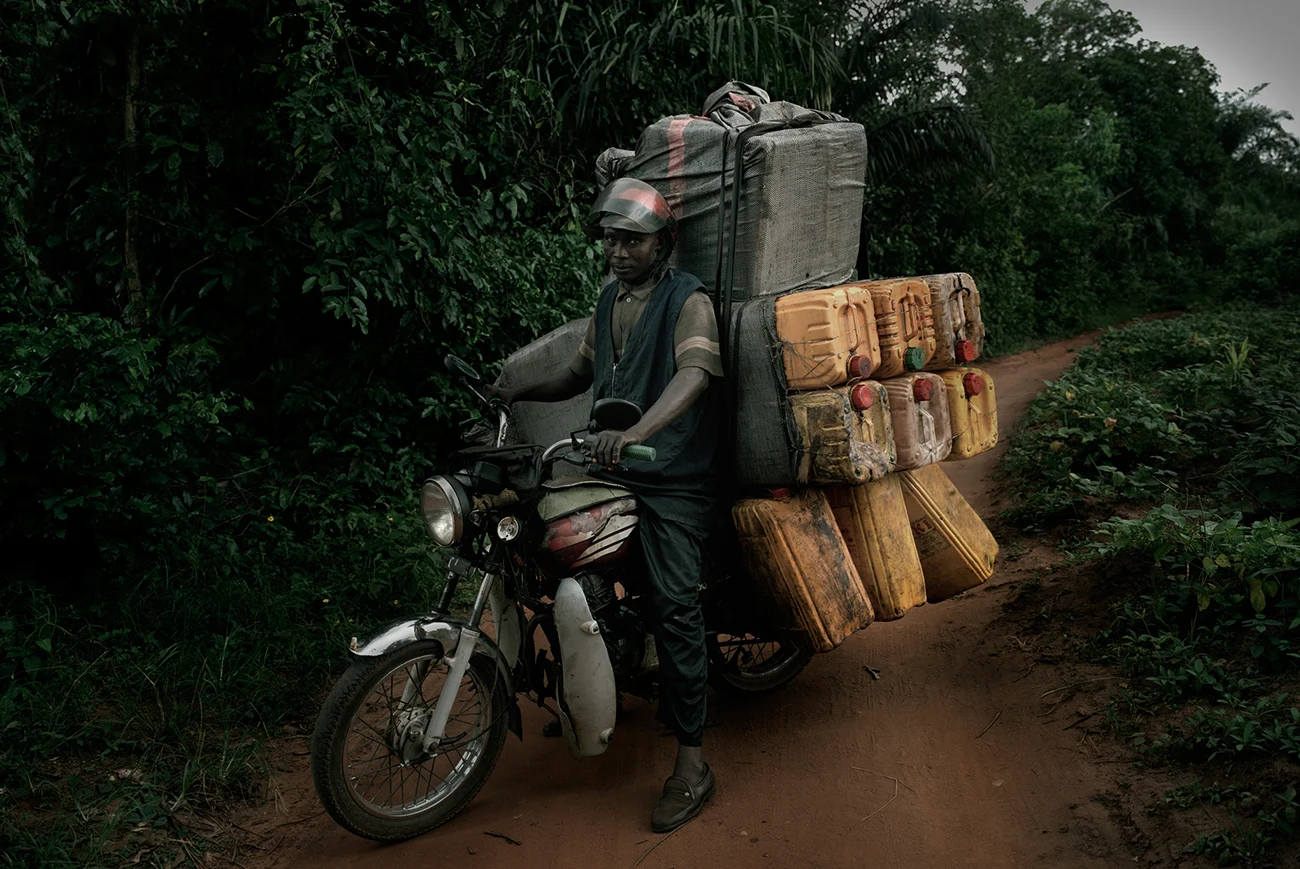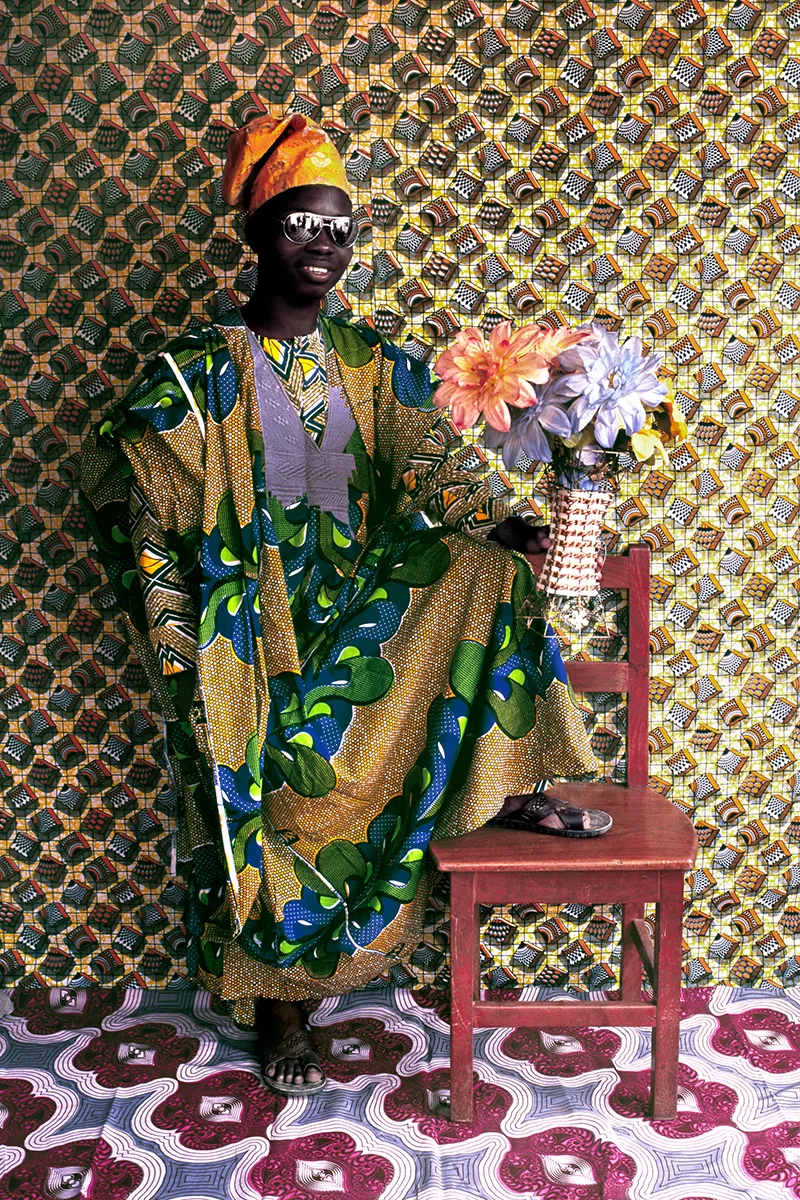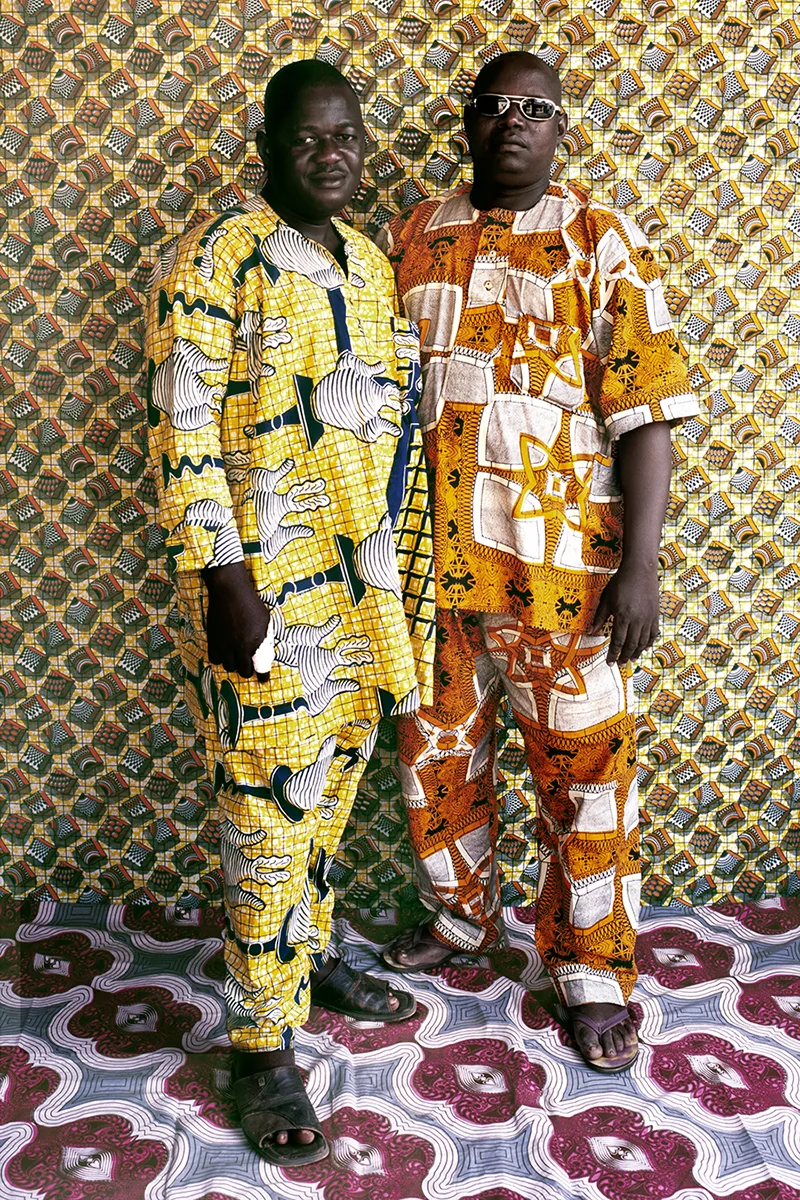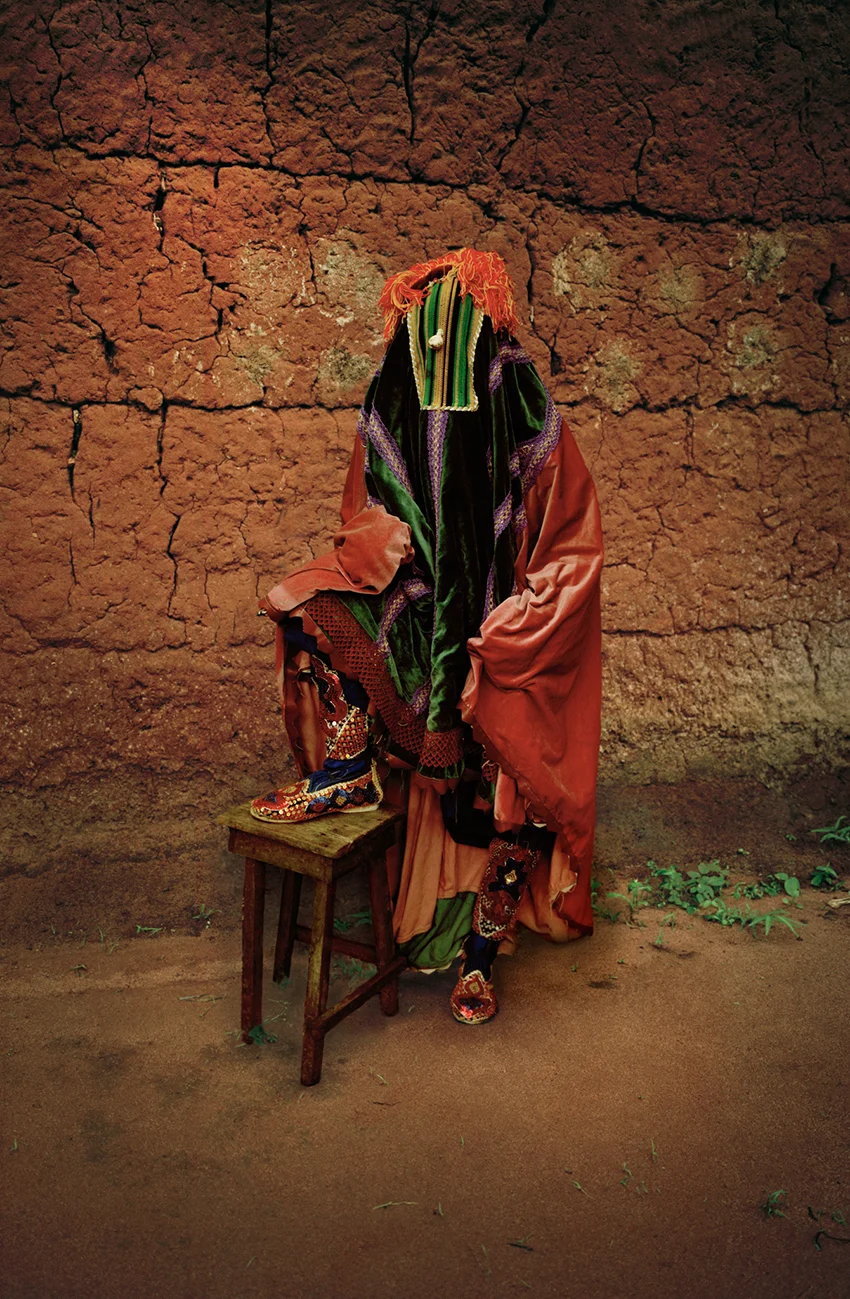

Growing up as the son of one of West Africa’s most renowned photographers, it was never in much doubt what line of work Leonce Raphael Agbodjelou would come to find himself in. Like his dad before him, his focus is putting the spotlight on the everyday people of Benin and its capital, Porto-Novo. He tells Alex Kahl about how he’s carved out his own unique style of photography that stands out in a cultural environment that’s heavily committed to tradition.
Images courtesy of Jack Bell Gallery.
Leonce Raphael Agbodjelou’s dad, Joseph Moise Agbodjelou, learned to take photographs while fighting alongside the French army during World War II. When he returned he became one of the most prominent photographers in West Africa. Growing up, it was watching Joseph work that introduced Leonce to the field.


“Even though we were schoolchildren, we had to be at his side to follow what he was doing. How to adjust the diaphragm, the shutter speed, everything concerning the technical side of shooting,” he says. “At night, we’d watch him as he developed the film, and for the treatments on the photo paper.” Later, Leonce became Joseph’s assistant, and together they would travel to villages to capture the lives of the locals.
Having been surrounded by cameras his whole life, it was an easy decision for Leonce to pursue photography himself. His own photography work is clearly influenced by his dad’s, with highlighting the everyday people of Benin, specifically the capital Porto Novo, clearly the most important thing for both of them.




Leonce’s ongoing series Citizens of Porto-Novo spotlights so many of the personalities in his home city, and he talks about how many of his subjects, especially the younger generation, are caught between traditions and moving forwards. It’s a country steeped in tradition and age-old beliefs, but like any other country, it’s modernizing, if gradually.
Throughout his work, Leonce captures this limbo Benin finds itself in. In some series, he explores the Yoruba tradition of the Egungun; masked, costumed figures used in ceremonies to honor those who have passed away. In many of his portraits, his subjects wear traditional Yoruba dress. Yet, in other works, there’s a distinct feeling of modernity, from the sunglasses on camouflaged figures’ faces to the toned bodybuilders he captured in Musclemen.
I always try to adapt the backdrop to the subject. A harmonious marriage.
Porto Novo and Benin have a complicated past, and with its history of slavery and colonialism, it’s hard not to see the camouflage suits in some of Leonce’s photos as a reference to that. Yet somehow, the way Leonce matches the outfits to the backdrop changes the images, as he makes something beautiful out of a fabric many associate with combat.
Whether it’s the perfect symmetry of the men in camouflage blending into their surroundings or the contrast of the Egungun bouncing off the plain houses behind them, backdrops are a key part of the process for Leonce, just as they were for his dad. While working as his assistant, they would create backdrops for photos together using textiles and paint and other materials. “These days, I create my own decors. I match them to the subject,” he says. “Very often my decor does not dominate the subject. I always try to adapt it. A harmonious marriage.”


Joseph formed a studio named France Photo when he returned from the war, and Leonce has followed in his footsteps, opening a training centre named CFP-FPV (Centre de Formation Professionnelle France Photo Video), focused on offering quality photographic training to the apprentice photographers in the city of Porto-Novo and its surroundings. “Very few photographers in Benin do the same work as I do. I am a researcher and an artist, and in general photographers in Benin are making reports or photos of events,” he says. “This is because the training for most photographers here has proved to be incomplete. It’s based on observation and mimicry and doesn’t link theory to practice.”
Leonce is focused on giving back to the Beninese community, something which he already does simply by photographing it so actively. Many Beninese people take photography very seriously. Leonce said in an interview with Ammo that “It is a commonly held belief, and source of fear, in Benin’s culture that a person’s soul lives on, trapped, within the photograph.” This may explain why he and his dad both placed so much importance on capturing the people of Porto-Novo and beyond in such a beautiful way. “I am not a mystic, but an artist who only seeks to give value back to his culture and his country,” he says. “I move forward and I move forward.”







